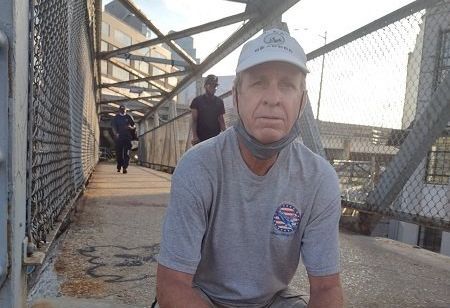Prosecutors use Mental Health as a Means for Convictions
MCAO paints people with psychiatric disabilities as liars and obstacles to winning a conviction

In training materials recently obtained by the ACLU of Arizona, the Maricopa County Attorney’s Office (MCAO) refers to the people it prosecutes using the slur “crazy” and paints people with psychiatric disabilities as liars and obstacles to winning a conviction – not as human beings worthy of respect.
One training presentation explains Rule 11, a court-ordered process to determine if an accused person is competent to understand court proceedings and the charges against them. It begins with a slide reading “Rule 11 OR Exactly how crazy do I need to act to get out of here?”
Another training on mental health in homicide cases is titled: “Mental Health: Look at me, I’m CRAZY!”
These documents are telling: in the Maricopa County Attorney’s Office it is apparently acceptable to train prosecutors to dehumanize some of the most vulnerable people they prosecute.
When new prosecutors are told to immediately assume the people they’re prosecuting are lying or exaggerating, it surely becomes much easier to throw them in prison, or to not care that they’re sitting in jail without access to the mental health treatment they need.
It’s particularly concerning given the statistics regarding people who are incarcerated in jails and prisons. The presenters are dehumanizing a large proportion of the people they prosecute.
According to statistics from the Arizona Department of Corrections, about 29 percent of people currently in prison require ongoing mental health services. Nationally, about 56 percent of people in state prisons currently have a mental health disability.
What is equally troubling is how difficult it was for the ACLU of Arizona to obtain these training materials.
In May, we sued former Maricopa County Attorney Bill Montgomery after he ignored our public records request for over seven months.
We asked for basic information about how the office functions: policies, procedures, staff rosters, budget figures, and data on how the office resolves criminal cases.
Once the lawsuit was filed, MCAO slowly started releasing some of these public records. But MCAO, was still withholding some critical information, including these training materials.
It wasn’t until after Gov. Doug Ducey elevated Bill Montgomery to the Arizona Supreme Court that the Office released the insensitive training materials.
It shouldn’t take a lawsuit for the public to find out how they will be treated by their elected county attorney and the prosecutors who answer to them. But across the country, prosecutor’s offices are notorious for hiding public information, and the Maricopa County Attorney’s Office is no different.
Allister Adel was recently appointed to replace Montgomery as the head of MCAO.. In one of her first statements to the press , Adel said she is a “big believer in transparency.” Yet her office continues to withhold many general office policies that guide how prosecutors do their job, thwarting the right of Arizonans to monitor the performance of the government officials in her office. Rather than continuing Montgomery’s policy of hiding what MCAO does, Adel should stand by her own advice: “If we are doing our job right, we have nothing to hide.”
In 2020, Adel will run for election along with several other candidates in what is already turning out to be a contentious race. We look forward to sitting down with Adel, and all county attorney candidates, to find out whether they will condemn the use of offensive language in training materials and forcefully reject the mindset such language reveals.
We also want to know if the county attorney candidates will commit to making the office more transparent by promptly responding to public records requests, posting policies, procedures, and sentencing data online in an easily accessible database, and implementing a plan to meaningfully communicate with the public, and more specifically, with those communities most impacted by incarceration, like those with mental health disabilities. Ultimately, it will be up to the voters in 2020 to hold their elected county attorneys accountable.
Jared Keenan is the criminal justice staff attorney with the American Civil Liberties Union of Arizona. He can be reached at jkeenan@acluaz.org or on twitter at @realJaredKeenan.








